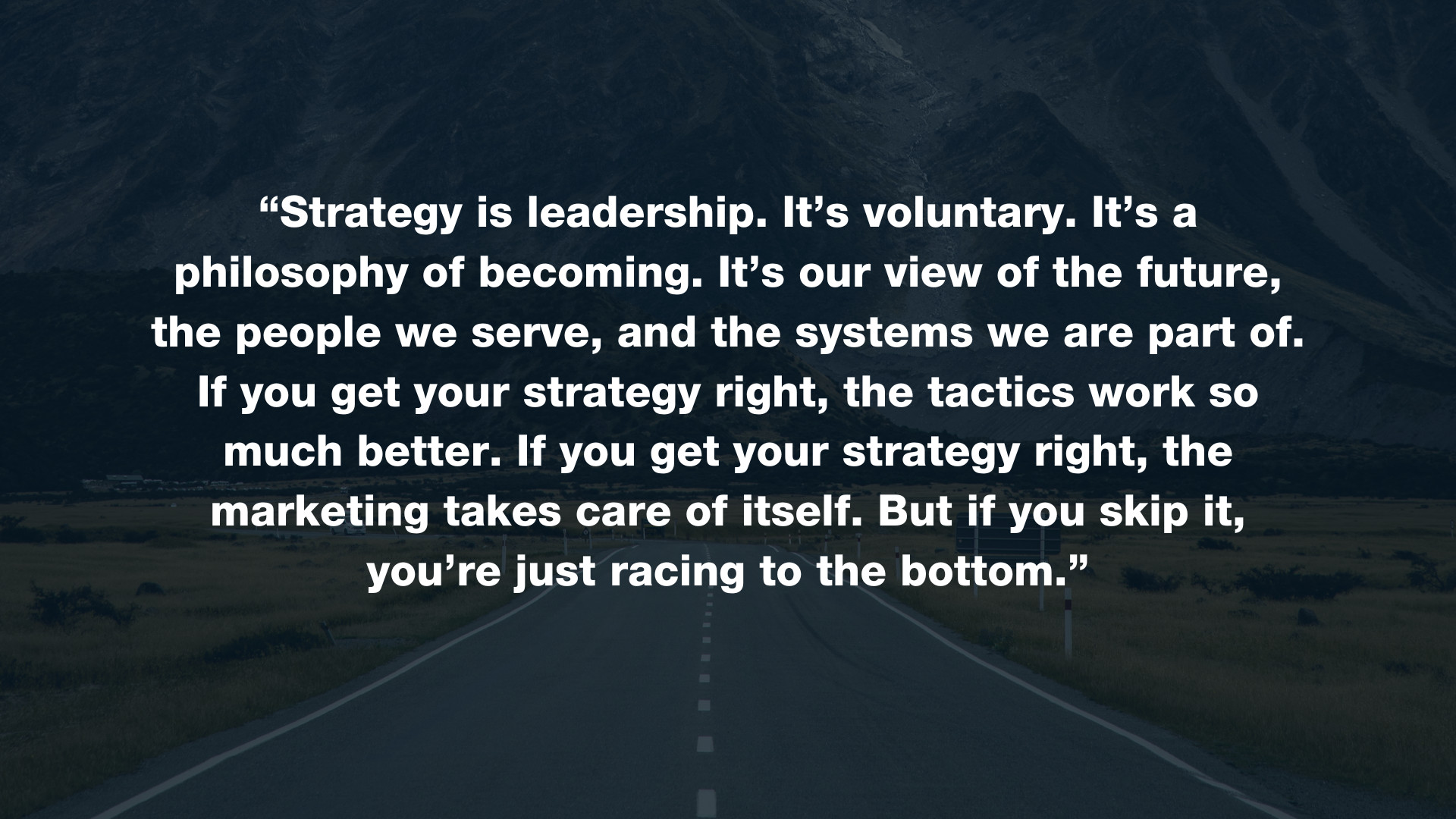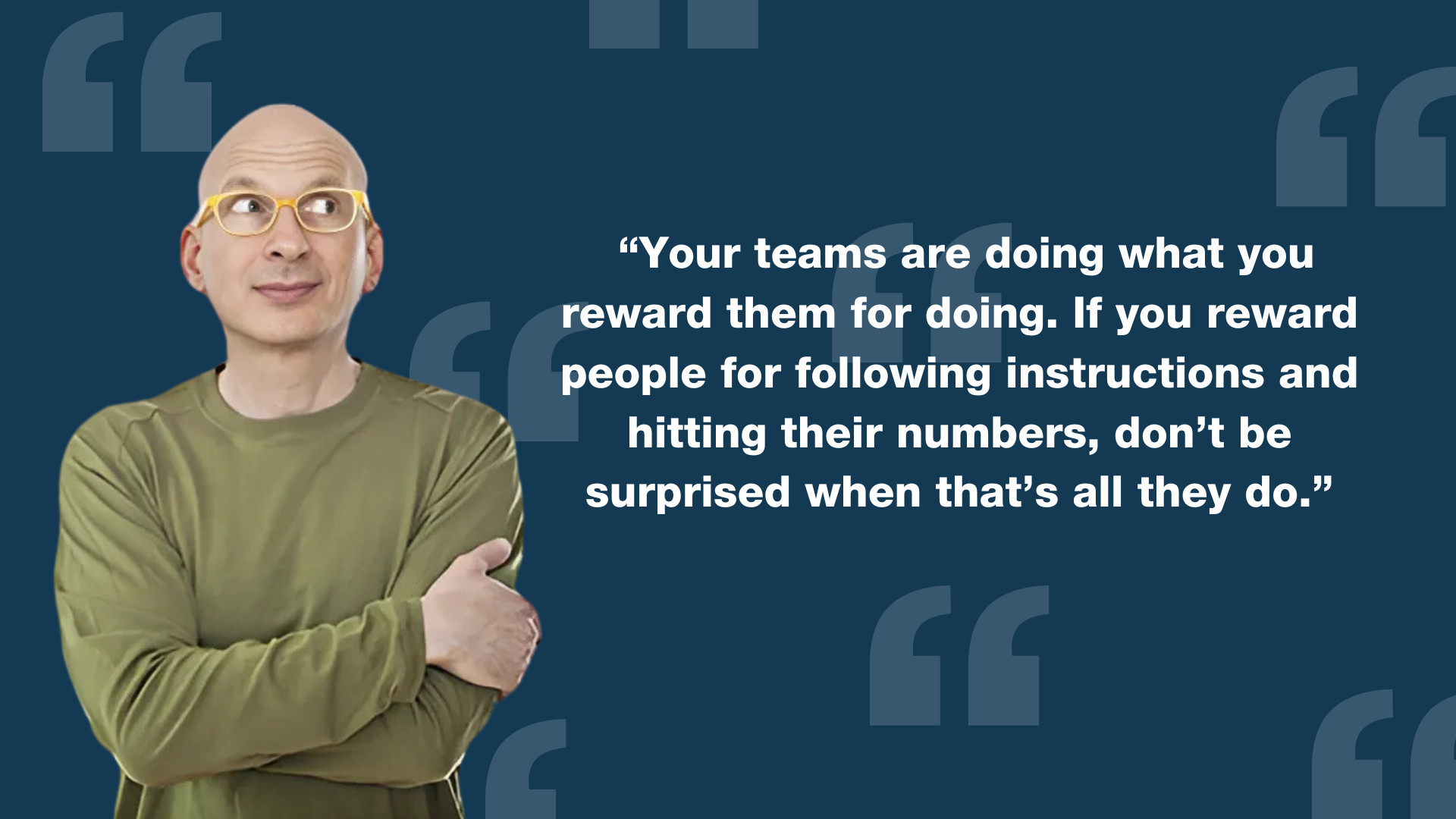From Strategy to Action: A Conversation with Seth Godin on The Leadership Standard Podcast
In our recent episode of The Leadership Standard Podcast, host Jamie Mason Cohen sits down with Seth Godin, a 21-time best-selling author, entrepreneur, and teacher, to discuss strategy and how it can transform organizations. Seth shares his profound insights on why strategy is often misunderstood and how leaders can use it to achieve meaningful change.
Q: Seth, many people think they understand strategy, but you’ve said it’s often misunderstood. How do you define it?

Seth Godin: “Strategy is not tactics. There are a lot of books about tactics that call themselves discussions about strategy, but they’re not.
“Tactics are tasks. If you’re a manager, you have power and authority to give people tasks. If they do the tasks, you expect an output. We need tactics, but that’s not strategy.
“Strategy is leadership. It’s voluntary. It’s a philosophy of becoming. It’s our view of the future, the people we serve, and the systems we are part of. If you get your strategy right, the tactics work so much better. If you get your strategy right, the marketing takes care of itself. But if you skip it, you’re just racing to the bottom.”
Q: Why do leaders spend so little time on strategy?
Seth Godin: “It’s about the future, and the future is scary. It might work, and if it works, then you’re responsible. It might not work, and then you feel terrible.
“It’s so much easier to do what we’ve been indoctrinated to do since elementary school: do what the boss says and get the right answer. But strategy doesn’t have a ‘right answer.’ It’s about making a decision, taking a position, and creating the opportunity to make things better.”
Q: What’s an example of a bad strategy?
Seth Godin: “Someone’s going to win the lottery, but it’s probably not going to be you.
“If you’re a small business person and say, ‘My goal is to be a TikTok influencer,’ that’s not a strategy. That’s a lottery ticket. Similarly, the status quo feels like a worthwhile strategy, but it almost never is.
“Take Blockbuster. There were smart people who saw Netflix coming, but none of those people got rewarded for talking about it. They were incentivized to follow the status quo, and we all know how that ended.”
Q: How can leaders build a culture of strategic thinking within their teams?
Seth Godin: “Your teams are doing what you reward them for doing. If you reward people for following instructions and hitting their numbers, don’t be surprised when that’s all they do.
“When you reward people for having honest conversations about strategy, they’ll have more of those conversations. When you reward people for making good decisions—even when they lead to unfortunate outcomes—they’re more likely to make good decisions.
“At Blockbuster, smart people saw the future, but they weren’t rewarded for discussing it. Contrast that with Patagonia, where the culture and incentives align with long-term strategy.”

Q: You often say, ‘Pick your customers, pick your future.’ What does that mean?
Seth Godin: “If you’re a wedding photographer and specialize in super-expensive weddings, you’ll spend your days with high-strung clients. That’s your future.
“If you’re a consultant and position yourself as easy to find and cheap to hire, you’ll attract clients who don’t value your work. But if you focus on being the best in your niche, you’ll attract clients who respect what you do.
“We get to pick our customers. If you’re not regularly saying, ‘Sorry, I can’t help you,’ you’ve given up agency. Don’t focus on ‘niching down.’ Think about ‘niching up’ and becoming the best in the world at what you do.”
Q: How does strategy connect to time?
Seth Godin: “Strategy plays out over time, like planting and tending a garden. The first few steps might not seem like much, but they compound into exponential growth.
“When you start a podcast, your first episode might only reach three people. But if it’s good, those three people tell six others, and it grows.
“Leaders need to make decisions today that their future selves will thank them for. Five years from now, will you look back and be grateful for the seeds you planted today?”
Conclusion
Seth Godin’s perspective on strategy challenges Canadian business leaders to think beyond immediate tasks and embrace long-term, purposeful decision-making. Strategy is not about reacting to the moment but creating systems and visions that lead to meaningful change.
Ready to dive deeper? Listen to the full episode of The Leadership Standard Podcast with Seth Godin and Jamie Mason Cohen.




